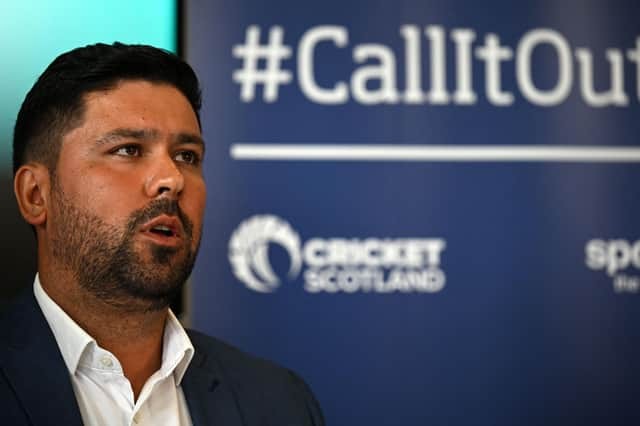Cricket Scotland: Institutional racism finding is a wake-up call for us all about the need to be 'actively anti-racist' – Scotsman comment


However, things quickly turned sour and he began to view his presence as “tokenistic”. “I carried drinks for the whole tour. It became a running joke among players and I felt humiliated. I felt I was treated as a personal servant at times. They even criticised the way I would make certain people’s drinks,” he said.
Sheikh was speaking as SportScotland published the findings of an investigation which uncovered no less than 448 examples of institutional racism. On Sunday, the entire Cricket Scotland board had resigned.
Advertisement
Hide AdAdvertisement
Hide AdThe report painted a picture of a sport in denial about the extent of the problem. “One club suggested that racism would never happen in their setting. The concern... was that the same club used out-of-date language in the context of race during the consultation call,” said one telling passage.
A survey of those involved in the game, 73 per cent of whom were white, found 62 per cent had “experienced, seen or had reported to them” incidents of racism, discrimination or inequality.
Stewart Harris, SportScotland’s chief executive, described the findings as “deeply concerning and in some cases shocking”, and pledged that Cricket Scotland would be held to account “on all of the recommendations”.
On one hand, it is a welcome report and all the cricketers who spoke out and took part in the investigation deserve praise. While their careers may have been blighted by discrimination, by taking a stand they have created a real chance to build a fairer world for younger generations. But that will depend, to a significant degree, on ensuring significantly greater diversity at the highest levels of the game.
On the other, it is deeply depressing that such idiotic, foul and soul-destroying prejudice should be so prevalent in modern-day Scotland.
Harris said the report should be a “wake-up call for all of Scottish sport”, adding “it is no longer good enough to simply be non-racist, Scottish sport must now be actively anti-racist”.
But it is also a wake-up call for anyone under the illusion that the number of racists is so small that they can be ignored, rather than challenged. Faced with such stark evidence, we must all be actively anti-racist.
Comments
Want to join the conversation? Please or to comment on this article.
